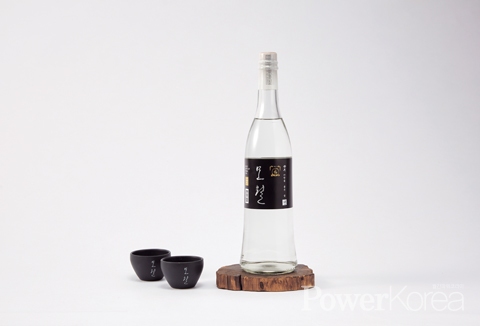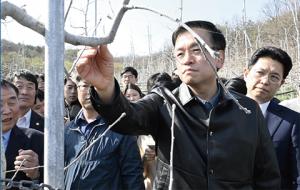 |
||
| ▲ Mowol Cooperative / President Kim Won-ho | ||
Korean's love of liquor goes back to Mahan confederacy (1BC to 5AD). They brew grain wine to pay respect to their ancestors and enjoyed dancing and singing alongside drinking. A book of Joseon dynasty records that commoners made and drank 400 kinds of liquor and the number goes up 1,000 when included unrecorded.
It was the colonial era that these traditional Korean liquor making came to a halt. Cheap chemical liquor such as soju, alongside makkolli (sparkling rice wine), replaced them instead by the Japanese and it seemed to have changed the way Koreans make and enjoy liquor forever.
Thankfully, there are activities of people who started to see the value of traditional Korean liquors nowadays and they are slowly gaining recognition in the market. Surprisingly, 1,234 traditional liquor makers are registered their businesses as of 2020. This reflects Korean's ever sophisticated taste for different kinds of liquors home and abroad.
Nestled in Wonju, Mowol Cooperative is a traditional liquor brand famous for winning the presidential prize at the 2020 Korea Liquors Contest. Led by Kim Won-ho, 13 friends in the same mind set up the business in 2014 with the brand name Mowolin which they borrowed from Mowol Mountain in Wonju meaning mother (mo) and the moon (wol).
Mowolin is a distilled liquor made only with totomi, the locally grown rice, without any chemical substances. Those who drank say it has no unique smell of yeast and the swallowing is smooth; it is dry and clean and has delicately lasting flavor.
"We use less amount of yeast (5%) compared to other distilled liquors (15~20%) and we ripen for 6 months. The reason it is not sweet is because the yeast eats the sugar of the rice during the ripening process."
Clean water is vital to make good liquors. Wonju is famous for water runs around Chiak Mountain and it never dries even in times of drought. Totomi (nonglutinous rice), meanwhile, is grown around the Seom River and the upper reaches of the Namhan River. These never dry clean water and locally grown totomi meet to create Mowolin. Nonglutinous rice requires more effort in ripening but the taste pays back the effort, adds Kim.
In fact, Mowolin winning the presidential prize did not come from the quality only but also from Kim and his friends' devotion to continuous research and development with local university as well as win-win management. Kim himself has traveled far and wide in search of good Korean liquors before forming the cooperative in 2014 and starting to participate in the contest from 2016.
"It is the single-mindedness of me and my colleague friends that we won the presidential prize. We have become stronger whenever we faced obstacles and we pushed it harder and further to achieve what we want. With our accumulated knowledge and knowhow, we will soon introduce makkolli (sparkling rice win). We actually have obtained a patent for this paper mulberry contained makkolli and we are as confident as Mowolin to make a success."
Mowolin is sold at Panboo Nonghyup, 80 pubs in Seoul and online at the moment.
 |
신태섭 기자 tss79@naver.com







